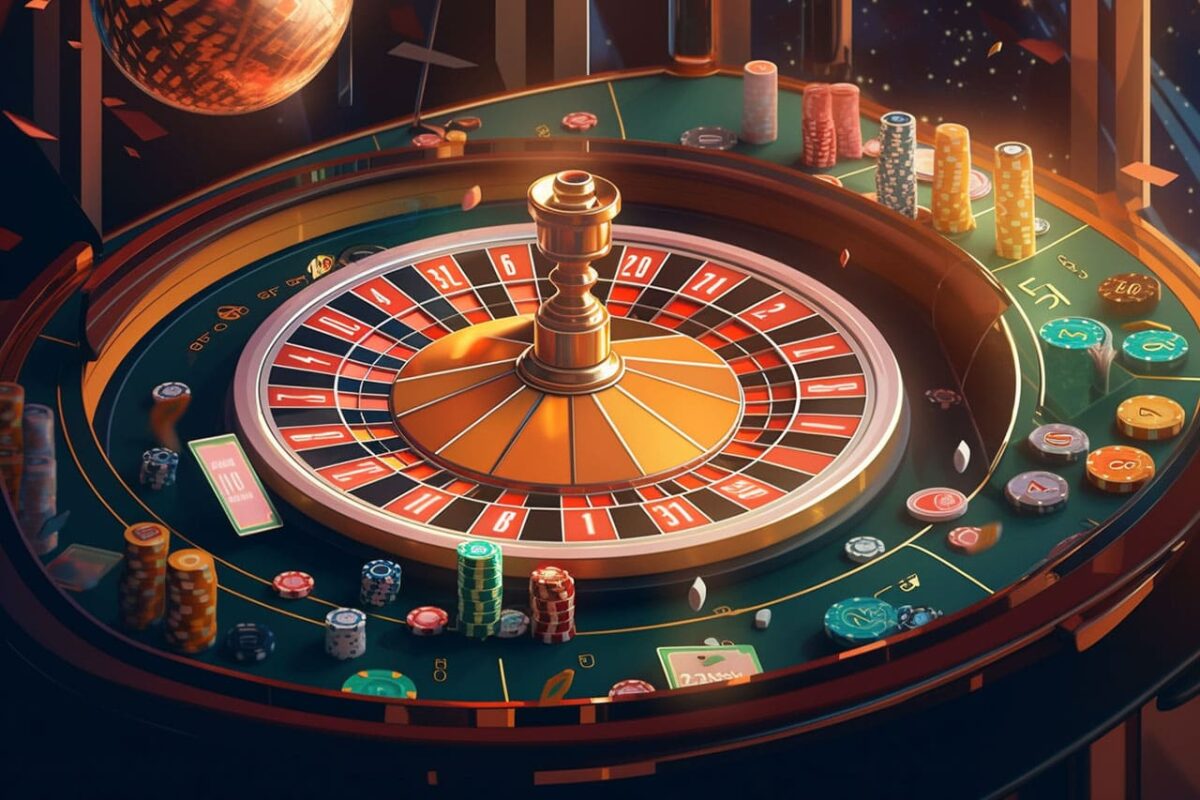It is said that roulette was invented by a Frenchman named Blaise Pascal in the 17th century, while he was attempting to create a perpetual motion machine. Whether this is true or not, there is no denying that the game of roulette has a rich and fascinating history that spans centuries and continents.
As a lover of gambling and a student of history, I have always been fascinated by the origins of roulette. So come with me now, dear reader, as we journey back in time to explore the early days of this timeless game.
A Game of Chance
In its earliest form, roulette was a simple game of chance played with a wheel and a ball. The first roulette wheels were likely made by French craftsmen in the 18th century, and they featured numbered pockets in alternating colors of red and black. The ball would be dropped onto the spinning wheel and eventually come to rest in one of the pockets, determining the winner of the round.
The origins of the name “roulette” are somewhat mysterious. Some believe it comes from the French word for “little wheel,” while others believe it is derived from an Italian word meaning “to roll.” Whatever its origins, the name is now synonymous with one of the most iconic casino games in the world.
A Game of Aristocrats
In its early days, roulette was primarily played by the aristocracy. The game was popular in the courts of France and other European countries, where it was seen as a symbol of wealth and sophistication. In fact, the earliest forms of roulette were often played in exclusive clubs and private homes, where only the wealthiest members of society were allowed to participate.
Despite its exclusive origins, roulette eventually spread beyond the upper classes and became a popular game among all levels of society. By the 19th century, the game had made its way to America, where it quickly gained popularity among both the rich and the working classes.
The American Roulette Wheel
When roulette was first introduced to America, the wheel featured the same alternating red and black pockets as its European counterpart. However, in the mid-19th century, a new version of the game emerged that featured an additional pocket, marked with the number “00.”
This change had a significant impact on the game, as it increased the house edge and made it more difficult for players to win. This version of the game became known as “American roulette,” while the original version with only one “0” pocket was called “European roulette.”
A Game of Legends
Over the years, roulette has inspired countless legends and stories. Perhaps the most famous of these is the story of Charles Wells, a British gambler who is said to have broken the bank at Monte Carlo in 1891. According to the legend, Wells won over a million francs playing roulette over the course of several days, using a combination of luck and skill to outsmart the casino.
Whether this story is true or not, it has become a part of roulette lore and has inspired countless gamblers to try their luck at the wheel. Other legends surrounding roulette include the “666” superstition, which holds that the sum of all the numbers on the wheel adds up to the “number of the beast,” and the “gambler’s fallacy,” which suggests that past results can somehow predict future outcomes.
A Game of Strategy
While roulette is primarily a game of chance, there have been many attempts over the years to develop winning strategies and systems. Perhaps the most famous of these is the Martingale system, which involves doubling your bet after every loss in the hopes of eventually recouping your losses.
However, despite the many claims made by proponents of these systems, there is no evidence to suggest that they actually work. The truth is that roulette is a game of pure chance, and while it is possible to win big, there is no foolproof way to beat the odds.
A Game of Endurance
One thing that has remained constant throughout the history of roulette is its enduring popularity. Despite the many changes and innovations that have occurred over the years, the game of roulette continues to draw players from all walks of life to casinos around the world.
Part of the allure of roulette is its simplicity. Unlike other casino games that require a certain level of skill or knowledge, anyone can play roulette and have a chance at winning big. Additionally, the excitement of watching the ball spin around the wheel and waiting to see where it will land is a thrill that never grows old.
Conclusion
In conclusion, the origins of roulette are shrouded in mystery and legend, but what is clear is that this timeless game has captured the imagination of players for centuries. Whether you are a seasoned gambler or a curious novice, there is something about the spinning wheel and the thrill of the game that continues to draw us in.
So the next time you find yourself in a casino, take a spin at the roulette wheel and experience the thrill of the game for yourself.
